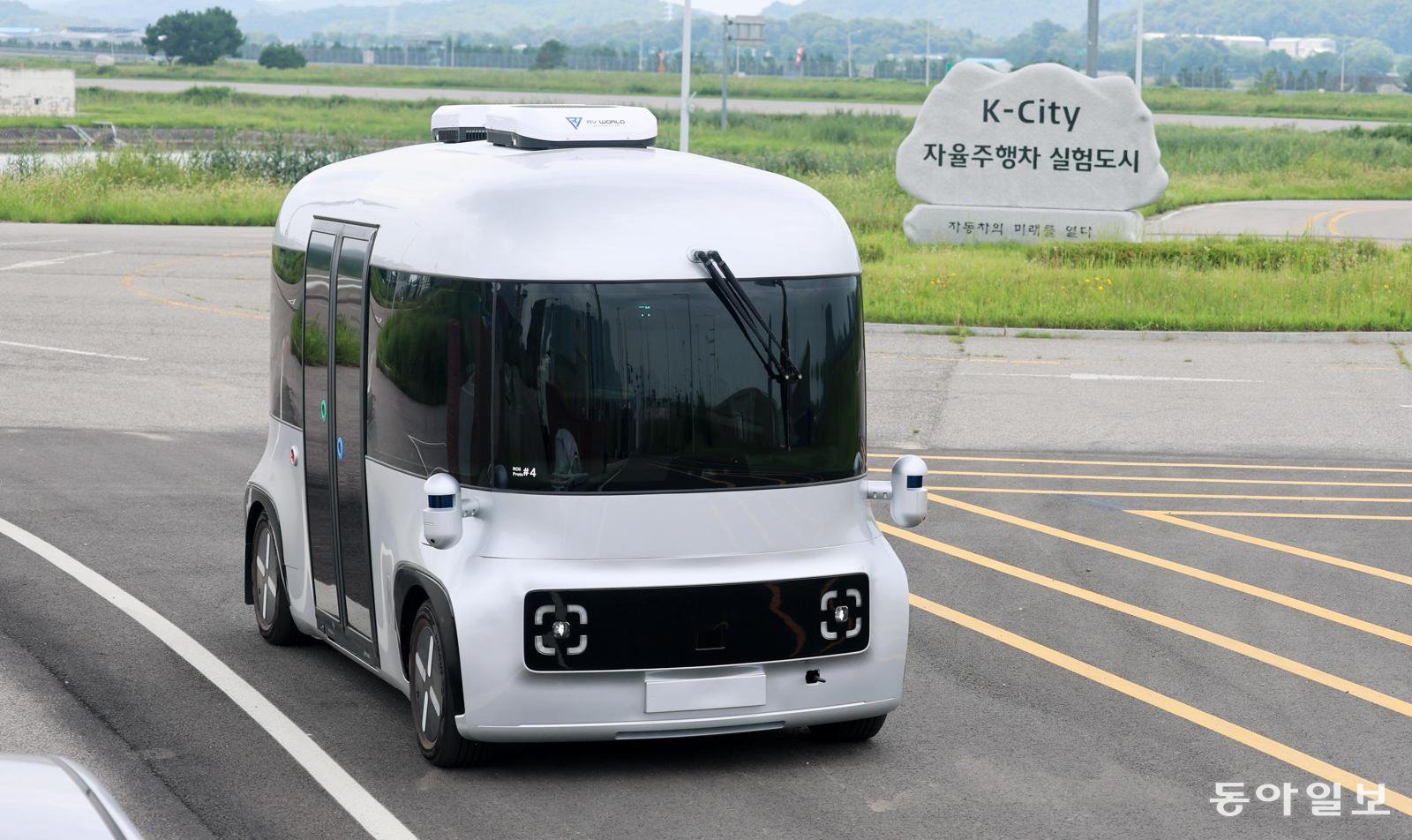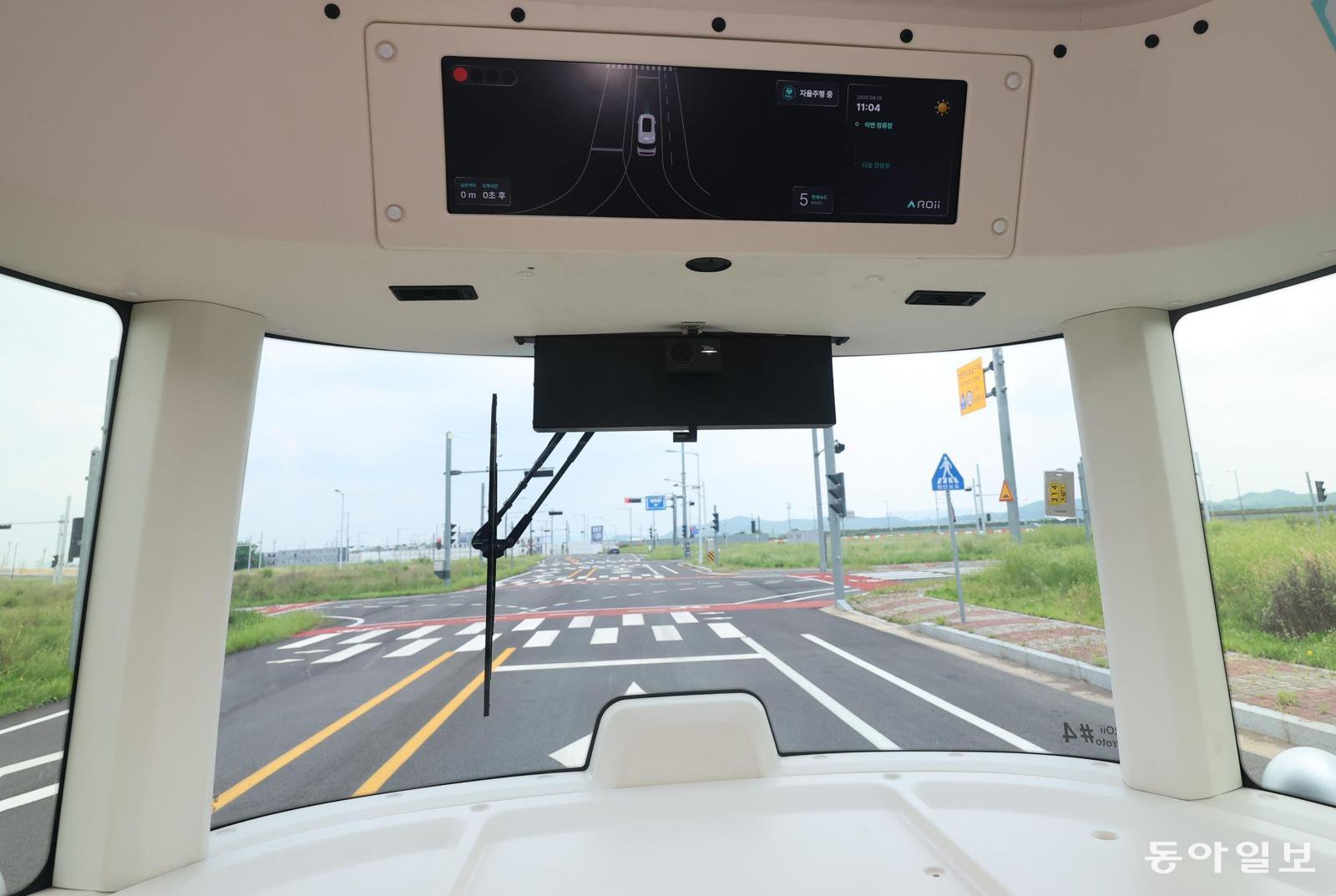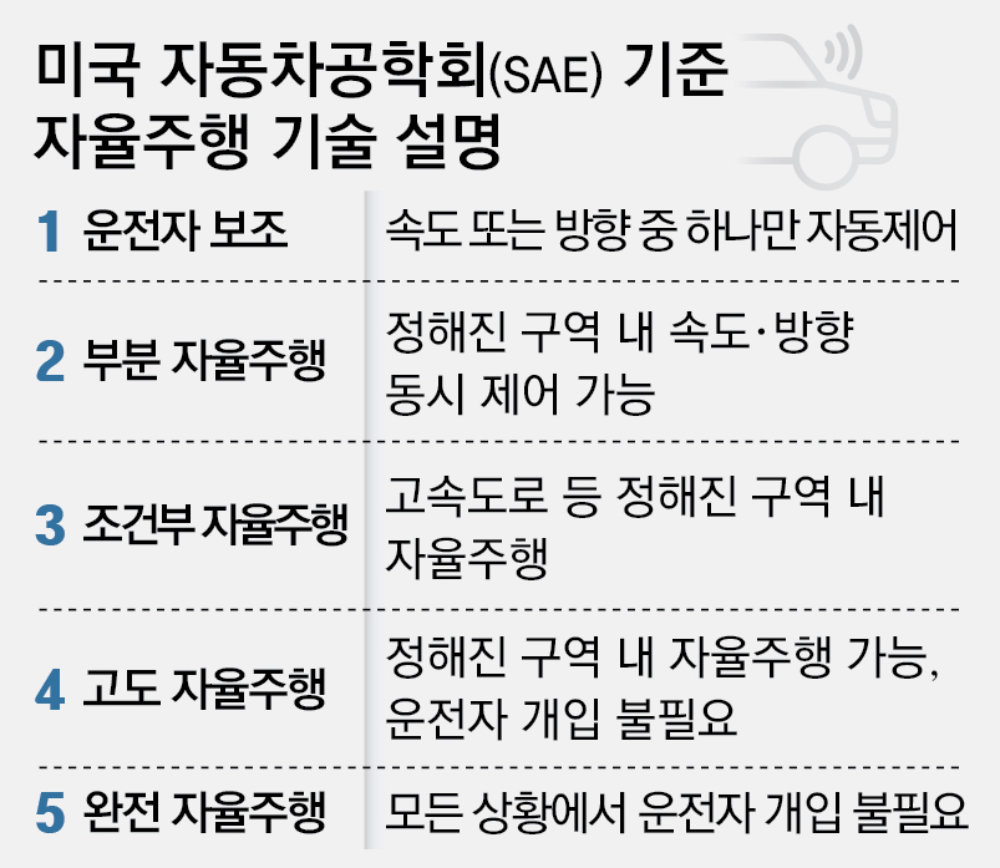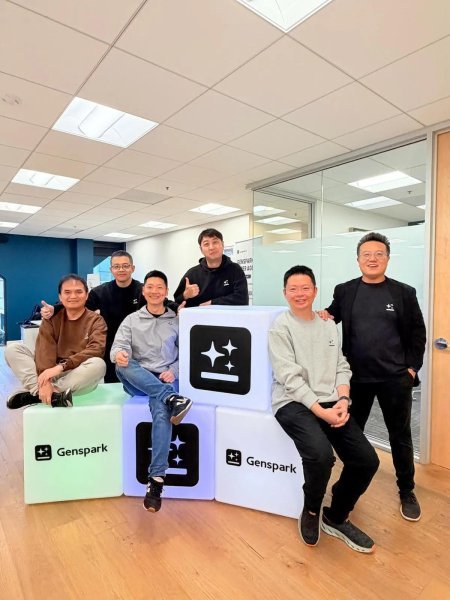
Autonomous Car
Driverless 'K-Autonomous Car' to Debut at Gyeongju APEC
Dong-A Ilbo |
Updated 2025.08.22
10 Level 4 autonomous vehicles deployed
Test ride at 'K-City'… 4 LiDARs and 7 cameras on front and rear
360-degree real-time road monitoring… "Automatically stops for obstacles, executes U-turns smoothly"
Test ride at 'K-City'… 4 LiDARs and 7 cameras on front and rear
360-degree real-time road monitoring… "Automatically stops for obstacles, executes U-turns smoothly"
On the 18th, at the Korea Transportation Safety Authority's Automotive Safety Research Institute's autonomous vehicle test bed K-City in Hwaseong, Gyeonggi Province, Autonomous A2Z's Level 4 autonomous driving bus 'ROii', which lacks a driver's seat, is undergoing a test run. Hwaseong=Jang Seung-yoon reporter tomato99@donga.com
On the 18th, at the Korea Transportation Safety Authority's Automotive Safety Research Institute's autonomous vehicle test site K-City in Hwaseong, Gyeonggi Province, 'ROii', developed by autonomous driving technology company Autonomous A2Z, was in operation. ROii is the first Level 4 autonomous vehicle in Korea without a steering wheel, pedals, or rearview mirrors, designed for complete unmanned driving rather than vehicle modification. The test drive, entrusted to artificial intelligence (AI), was impressive. ROii smoothly passed through intersections at about 40 km/h, with four LiDARs and seven cameras mounted at the front and rear of the vehicle monitoring the road conditions in real-time. It perfectly recognized traffic lights and autonomously stopped when obstacles were detected, even performing U-turns by itself. The display on the ceiling inside shows surrounding information acquired by the LiDAR, cameras, and radar at the front and rear of the vehicle. Hwaseong=Jang Seung-yoon reporter tomato99@donga.com
ROii and other Level 4 unmanned autonomous vehicles from Korea will also be deployed in Gyeongju, North Gyeongsang Province, where the Asia-Pacific Economic Cooperation (APEC) Summit will be held in October. This event will showcase autonomous vehicles made with Korean technology on the global stage, attended by leaders of major countries and top business executives. According to Autonomous A2Z, the official autonomous vehicle operator for APEC, and Gyeongju City on the 21st, a total of 10 autonomous vehicles, including ROii and two modified Kia purpose-built vehicles PV5, will be deployed for this event.● Seeking Breakthroughs Amid US-China Hegemony Competition
Although Korea is striving to catch up, the reality is challenging. According to estimates by the Ministry of Land, Infrastructure and Transport, the cumulative autonomous driving distance by domestic companies over the past three years is only 5,575,366 km. However, the industry anticipates this year to be a turning point for Korea's autonomous driving industry. ROii is expected to become the world's first Level 4 vehicle to receive government performance certification, allowing for commercial sales, and the number of autonomous driving pilot zones nationwide is expanding to 42 locations across 17 cities and provinces, indicating maturity in both technology and regulatory aspects. In fact, domestic autonomous vehicle technology development is accelerating. According to data from the Automotive Safety Research Institute's K-City, 82 companies conducted 7,951 hours of autonomous driving tests last year, and 45 companies tested for 3,112 hours in the first half of this year (January to June). Considering that operations were suspended for three months this year for facility maintenance, the actual scale of testing has increased.
● Securing Competitiveness through Selection and Concentration
Korea is seeking breakthroughs through a 'selection and concentration' strategy, focusing on commercial vehicles like buses and shuttles instead of passenger cars, and emphasizing collaboration with urban infrastructure such as roads.
In fact, Korea's technological prowess is beginning to be recognized overseas. Autonomous A2Z obtained an official operating license in Singapore in May this year, the first for a Korean company, and has been providing autonomous driving services since July. In the United Arab Emirates (UAE), the company is preparing to establish a joint venture, A2D (Abu Dhabi Autonomous Driving), with the goal of supplying 1,220 autonomous vehicles to the government by 2031.
Han Ji-hyung, CEO of Autonomous A2Z, stated, "Amid intense US-China technological hegemony competition, third countries are seeking neutral partners like Korea, which presents an opportunity."
Kim Jae-hyeong Lee Won-joo
AI-translated with ChatGPT. Provided as is; original Korean text prevails.
ⓒ dongA.com. All rights reserved. Reproduction, redistribution, or use for AI training prohibited.
Popular News













